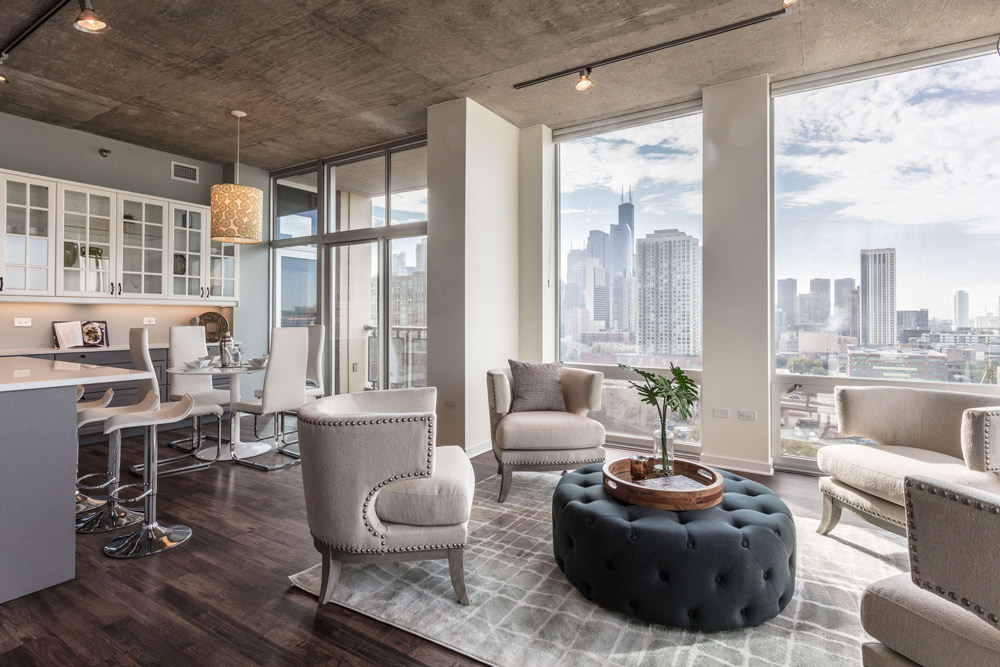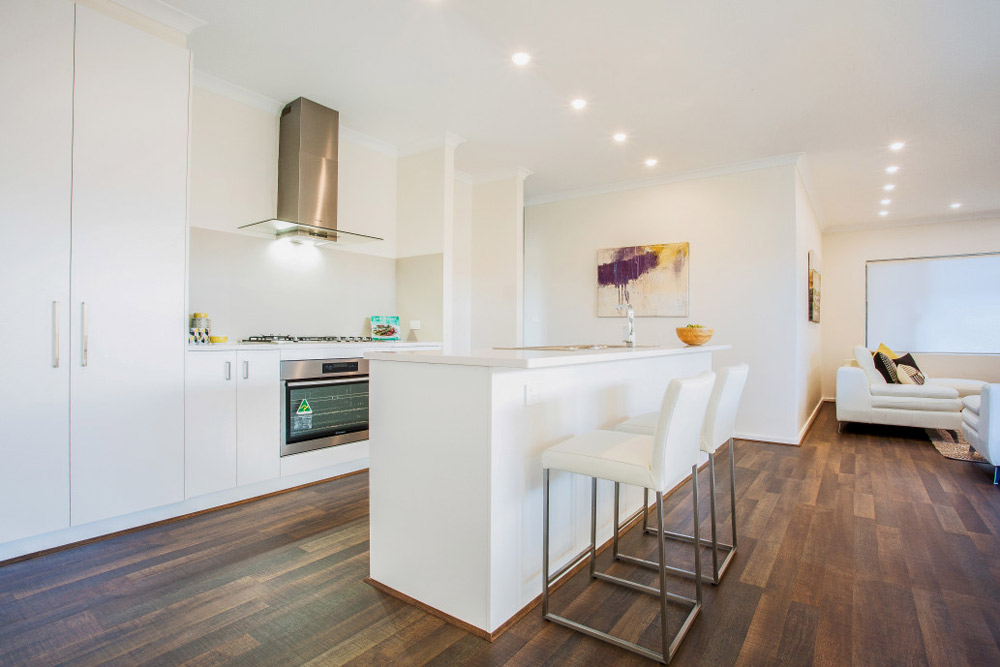Buying a Condo in Chicago?
You’ve made a great decision. Chicago is a city rich with history, adventure, and culture. The food scene, nightlife, professional opportunities, and more are no more than a walk or quick Uber ride away. (The real estate is booming, too!) We love living here, and we think you will, too.
Buying a condo can be a complex process, particularly as there are more rules, considerations, and steps for financing a condo versus a single family home. But as long as the condo qualified for your loan program and you followed your lender’s approval process, you should be all set.
So, what now? It’s time to start preparing to close on your condo! You’ll have an escrow account set up by a third party to handle the transfer of funds between you as the buyer and the current owner. You’ll also have an escrow account set up by your lender for the distribution of fees like taxes and insurance. Fees such as condo association dues likely won’t be paid through escrow.
When your closing date comes, you’ll attend the meeting along with your agent/broker, attorney, title agent, and any representatives from the seller’s side (and perhaps the seller, too). Don’t let this stress you out. While closings can take anywhere up to a couple of hours, your agent and attorney are there to answer any questions you have.
Remember to be thorough. Make sure the paperwork matches your final Closing Disclosure (CD) and that everything looks accurate. You’ll be handed a lot of paperwork, sign your signature until your hand is sore, and pay your closing costs.
When your condo closing is complete and the loan funds, you’ll receive your keys — making everything that came before that moment 100% worth it.
Make Sure You Do a Final Walk-Through Before Closing on Your Condo
Sure, some people might think a pre-closing walk-through is overkill — except you when the heavy rain that fell the night before closing revealed a serious leak that damaged half the wall in your living room. Glad you did that walk-through, aren’t you?
Doing a walk-through before closing on your condo might seem like a tedious step in an already long process, but it’s worth it. Identifying any issues before you finalize the loan could mean the difference between enjoyable, problem-free living and a stressful, extensive repair process.
Granted, most major issues are the responsibility of the association to resolve, but a pre-closing walk-through goes deeper. Have the repairs and fixes you negotiated with the seller been completed? Is the unit empty? Are other issues like floor damage revealed now that the seller has moved out? Get even more granular. Do the appliances work? Do the systems (HVAC, plumbing, etc.) work properly? Are there any signs of pests?
Ultimately, if there is a serious problem, you can delay your condo closing by negotiating a holdback, in which a portion of the seller’s proceeds are withheld pending the completion of repairs. However, you should consult with your attorney before taking action.
Here’s What You Should Expect for Condo Closing Costs
All right! You’ve found a home and performed a final walk-through. Everything looks good — the changes you requested have been made, the property is clean and empty. Closing day is almost here, so it’s time to get your closing costs squared away.
It’s important to understand what closing costs are. It’s a broad term that comprises a variety of charges pertaining to your purchase. It’s fair to include your down payment in the overall term “closing costs,” but be aware that closing costs are charged in addition to your down payment.
Depending on the mortgage program you chose, this can be anywhere from 0% up to however much you feel comfortable (and are capable of) putting down. (Note that lower down payment programs like FHA and VA require the condo to be on an approved list. If it’s not, you’ll likely have to get a conventional mortgage.) The loan amount also factors in. In certain high-cost areas, such as downtown Chicago, a higher down payment may be required since your loan amount may exceed the conforming loan limit.
Additional closing costs include homeowners insurance, attorney fees, application fees, underwriting fees, title fees and title insurance, municipal fees, recording fees, loan origination fees, etc. These fees will vary depending on where you’re moving, what mortgage company you financed the condo with, the attorney you’re working with, and so on.
The Condo is Now Yours — Time to Really Make It Yours
But before you do anything, you need to understand your condo association’s rules and requirements as well as what your obligations are when it comes to customization.
Now, if you’ve purchased a condo, there’s a good chance the previous owners put some elbow grease in to update its features and make it more marketable. If it’s a new construction condo, you shouldn’t need to do anything — you may have even had a say in the interior design.
That said, if the condo still needs some updates or personalization, your first step is to consult the condo association. Small things like installing a new faucet on your kitchen sink or painting a wall most likely won’t require association approval.
But anything that affects plumbing, electricity, or structural layout of a unit will require association review since any mishaps could affect other residents’ units. They’ll also want to review the contractor you’re working with to ensure they’re properly licensed and insured.
The consequences of going rogue could be steep. If you or an uninsured contractor (say, your buddy’s brother’s friend’s cousin who does remodeling on the side) made structural alterations that resulted in floor and wall cracks in the units above you, there’s a good chance the association would hold you financially responsible.
Bottom line: When it comes to your condo, it is far better to ask permission than beg for forgiveness — particularly when forgiveness means a hefty fine or legal action.
Condo Insurance: What’s Covered and What’s Not
You’ve heard about homeowners insurance. But what about condo insurance? Are they the same? Is condo insurance even required? If you have a mortgage on your condo, then yes, condo insurance is required. This is to protect the lender behind your mortgage in the event anything happens to the property (as well as you).
But the level of coverage as well as what you’re responsible for covering can vary by complex and according to your condo association’s policy. So, it’s important to start there. Review the association’s policy to identify what you’re responsible for covering.
For example, most associations will have something called a Masters Policy. This will specify what is covered by the association and what you need to cover. Things you’ll typically be responsible for covering are contents (valuables, furniture, etc.) and structure (flooring, fixtures, countertops, etc.). You may also need to add other coverages into the policy you get in the event the association policy doesn’t include them — coverages like wind, flooding, etc.
It’s Moving Day — Take These Steps for a Stress-Free Move
Ready to move into your condo? Of course you are! You’ve accomplished so much up to this point, and it has to feel amazing knowing that your new home is waiting for you.
There’s just one more task, but it’s a big one: moving. The earlier you start, the more prepared you’ll be when the big day comes. That’s why it’s critical to make yourself a moving binder in which you’ll keep important details and notes. The first thing that you should include is a moving checklist.
Also, you’ll likely be finalizing your mortgage during this process, so even though we specify times when you should be doing something, feel free to adjust depending on the progress of your loan.
About two months before you move, start clearing out what you don’t need or can’t take with you. Sell or donate old items, and start whittling down your perishable foods. Also, start researching moving companies if you’ll be using one.
One month out, pick a moving company and secure their services. Start gathering moving supplies, and notify utility companies of service cancellations or changes. If you are traveling a long distance, make sure your vehicle is in good shape and that you have an itinerary with important addresses and details prepared.
One to two weeks before moving, change your address with the USPS and confirm dates with your movers. Begin packing, too. Group similar items together, color code and label boxes neatly and in a detailed manner, and clean rooms thoroughly as they become empty.
When you move, remember to be flexible. There will undoubtedly be complications that arise but address them one at a time. Remember to have some essentials handy in case things take longer than expected — extra clothes, hygienic supplies, etc.
When the move is complete, and you’re all unpacked, be sure to throw an epic housewarming party. Invite your friends and family, and even your new neighbors if you’re comfortable doing so.
Your Condo is Yours Now, So Take Good Care of It
It’s done. It’s finally done! You’ve purchased a condo and have moved in. Well done. We know it was a detailed process, but your new home is entirely worth it. Now that you’re settled, we have a few tips for maintaining your condo, so it retains its value, and you remain a good neighbor and resident throughout your stay.
- Clean thoroughly. It’s fine to give your condo a once-over on a weekly basis, but you should deep clean at least once a month. This means wiping off air registers, vacuuming under furniture (especially if you have pets), wiping off baseboards, cleaning windows and glass doors, and cleaning out appliance interiors.
- Check appliances. If your condo came fully furnished, you are responsible for the proper maintenance of those appliances. Make sure they’re in good working order, keep them clean, check their plugs, and verify any settings. Also be sure to check and test your smoke and carbon monoxide detectors.
- Check for pests. From bugs to rodents, even a small pest problem can quickly become a large problem. Check for droppings, nests, webs, etc. Remove them and contact a pest control company to help you. They can ensure that the problem is addressed completely.
- Making repairs/changes? Use a professional company that’s licensed and insured. This ensures that quality work is being performed and that you’re covered in the event the contractor makes a mistake. Remember, any alterations to your condo will likely require approval from the association. Notify the association first before beginning any work.
And remember that those condo association fees go toward maintaining certain aspects of the building, so you don’t have to, like exterior spaces, interior common areas, security, valet parking, etc. Those are valuable services that ensure your condo is a clean, comfortable place to call home.










